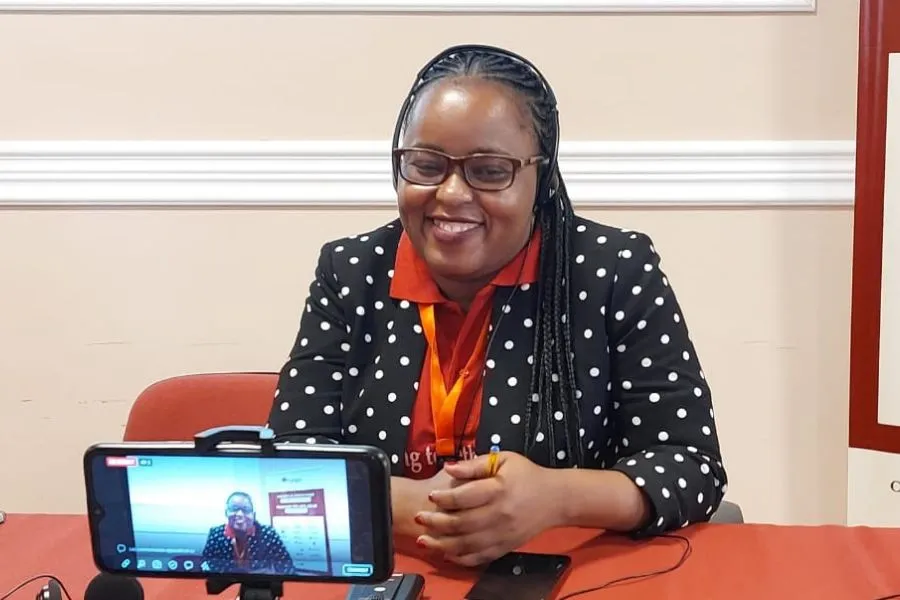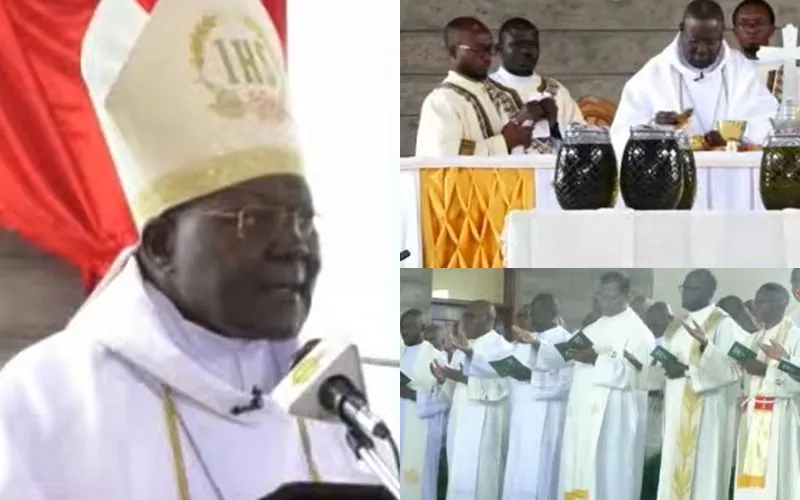The Kenyan-born Caritas official was named Caritas Africa’s Secretary General after a grueling selection process that was undertaken to replace Albert Mashika whose term had come to an end.
In the interview with ACI Africa, Ms. Esipila shared her gratitude following the appointment, saying, “I feel joy and happiness. I am grateful to God for this opportunity. I have been serving with Caritas for 10 years and I can say that it is a job that fulfills. It is good to serve the Church in Africa.”
Sharing her vision for the development arm of the Church in Africa, the Nairobi-based Caritas official said, “I will be paying attention to what God intends for Africa because we play a crucial role in the service of charity in ensuring that the communities we serve are feeling close to the Church because of our actions.”
“My vision for Caritas Africa is for it to be a strong organization, and this is possible based on the solid foundation that we have right now,” she said.
She explained, “We need to be a strong network with agencies, a network that can mobilize resources internally and grow, a network that can collaborate with partners for us to support the communities and a network that is well recognized by governments for its role.”
“Our theme as Caritas Africa is ‘Building together resilient communities in Africa’. We can all do these things if we work together with our partners,” Ms. Esipila continued.
She went on to call on Diocesan Caritas to collaborate with their respective national offices in mobilizing resources to serve their Diocesan communities.
“We have 507 Diocesan Caritas organizations in Africa and my message for them is for them to know that they are part of a confederation. Diocesan ‘Caritases’ are part of their national Caritas organization. For us to work together, we must understand the structure within which we serve so that we can be able to enhance our role as local leaders,” the newly appointed Caritas Africa Secretary General said.
She added, “Right now, there is a discussion about local leadership and how to ensure that all actors are able to access resources for them to deliver timely, quality, and effective humanitarian and development initiatives. For us to engage, we need information from Diocesan Caritas in Africa.”
“Part of the things we have been discussing in our General Assembly is the need to pay our levies. We encourage Diocesan ‘Caritases’ to support their national organizations to ensure that they meet this obligation, which is important for us to be able to run the region. It is important that we look into how to grow our regional solidarity fund to respond to emergencies in our countries,” she further said.








